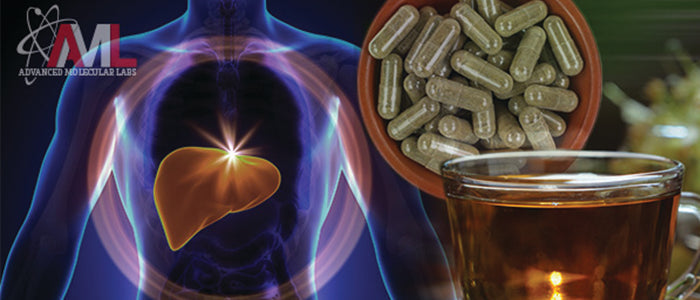


Green Tea Liver Damage: Understanding Effects & Risks
Green tea extract is an extremely popular supplement that people take to promote weight loss. The active ingredients in green tea include caffeine and epigallocatechin gallate (EGCG). While green tea extract appears to have few side effects other than elevated heart rate and small increases in blood pressure, research indicates that green tea extract can be toxic to the liver and has no long-term effects on body composition. It's important to be aware of green tea side effects on liver health when considering its use, as green tea liver damage can pose serious health risks.
Epigallocatechin gallate (EGCG) is a polyphenol found in green tea extract. A study on mice from China and Rutgers University found that EGCG was toxic to the liver by reducing important antioxidants that protect it from free radical damage. Free radicals are highly reactive chemicals linked to cell membrane damage, destruction of DNA, and cell death. This highlights the green tea extract dangers associated with high consumption and the potential for green tea extract liver damage.
A study led by Herbert Bonkovsky at the Wake Forest University School of Medicine reported that EGCG is toxic to the liver when taken in high doses. Researchers reported that at least 20 cases of liver injury have stemmed from green tea extract supplements. They stated, however, that these findings do not apply to consumption of green tea because the EGCG levels do not approach those found in green tea extract supplements. We are in the dark about the dangers of herbal products such as green tea extract. While people from China have consumed green tea for centuries, it is only recently that we have been able to concentrate key ingredients in herbal products such as EGCG, promoting the consumption of higher dosages that may lead to adverse side effects, including green tea liver damage.
Another study linked the consumption of green tea extract to liver cancer. Catechins are a second group of antioxidants also found in green tea. In a study of more than 18,000 men, Lesley Butler and colleagues, from the University of Pittsburgh Cancer Institute, found that high levels of catechins were linked to markers of liver cancer in people who were prone to the disease. Blood catechins increase in direct proportion to their consumption in the diet. Taking high doses of green tea extract could be deadly in high-risk people. The researchers noted that the incidence of liver cancer was much higher in China than in the United States, as green tea is a staple of the Chinese diet. This underscores the potential green tea extract liver damage that can occur with excessive intake.
High intake of green tea and green tea extract might be toxic to the liver. In one of the first case reports associating hepatitis with the consumption of brewable green tea, a healthy 16-year-old girl in England developed acute hepatitis after drinking three cups per day of Chinese brewable green tea, purchased online, for three months. After the consumption of green tea was stopped, there was a rapid and sustained recovery from hepatitis.
Other research found that green tea has no long-term effects on body composition. A 12-week study of 60 young adult men and women showed that it had no effect on fat absorption, resting energy expenditure, and body composition. By itself, EGCG is not effective for increasing weight loss.
New reports are emerging that describe mechanisms or conditions involved in possible liver damage as well as continuing cases of drug-induced liver injury occurring in people using EGCG-containing products. There are many reports that support both the idea that consumption of a great amount of EGCG can induce hepatocellular toxicity (liver damage) and that certain common drugs and supplements may exacerbate this.
Given the potential for green tea liver damage, the limited benefit of green tea extracts for weight loss does not appear to be worth the risk. Therefore, green tea extract containing concentrated EGCG is not recommended because of possible liver toxicity. When considering supplements, it is crucial to weigh the benefits against the risks, especially concerning green tea extract liver issues.
- Green tea extract liver damage is a significant concern, particularly with high doses.
- Green tea and liver damage have been linked to high levels of catechins and EGCG.
- Green tea side effects on liver health include potential toxicity and increased risk of liver cancer in predisposed individuals.
- Despite its popularity, green tea extract liver issues highlight the need for caution and moderation.
In conclusion, while green tea and its extracts offer some health benefits, the risks associated with excessive consumption, particularly concerning liver health, warrant careful consideration. Individuals should consult healthcare professionals before incorporating high doses of green tea extract into their regimen to avoid potential liver damage. To ensure safety, it is advisable to consider alternative supplements that offer similar benefits without the associated risks of green tea liver damage. Advanced Molecular Labs provides a range of scientifically-backed supplements designed to help you achieve your fitness and wellness goals safely and effectively.



